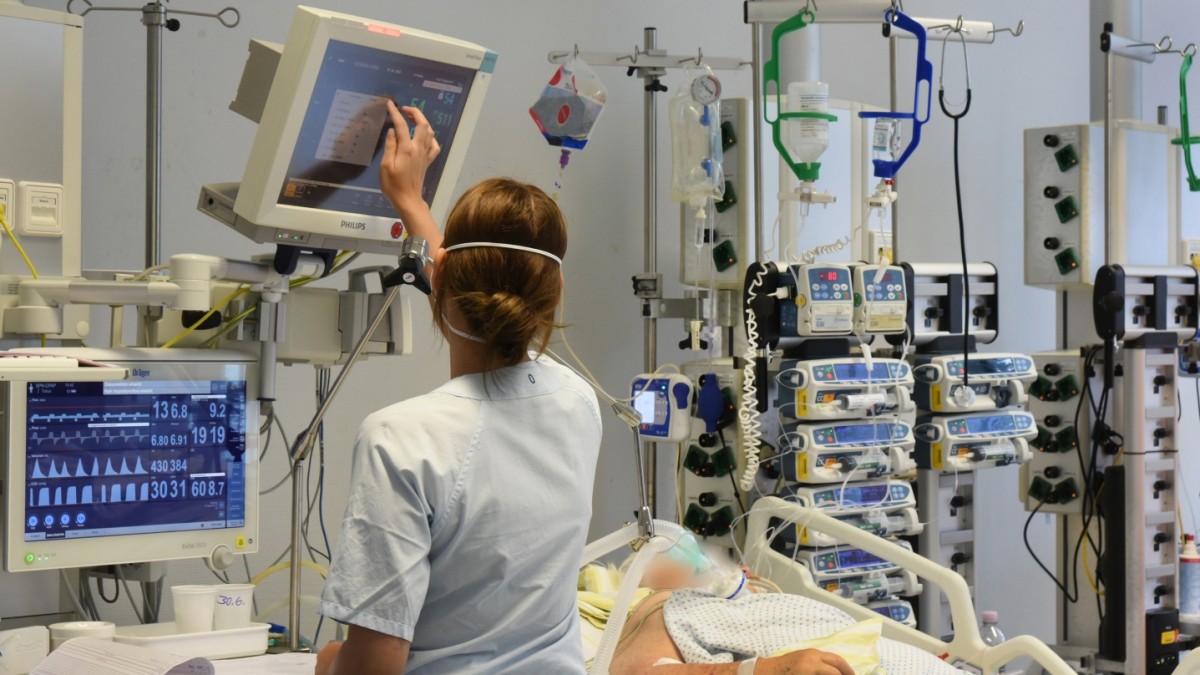The corona summer wave with a continuing increase in incidence is making work in hospitals increasingly difficult. There is not only a shortage of nurses, but also doctors. The German Interdisciplinary Association for Intensive Care and Emergency Medicine (DIVI) warns that 55 percent of the intensive care units in Germany, a total of 736 facilities, are currently having to reduce their services. Its President Gernot Marx told the newspapers of the Funke media group that emergency care was secured. However, only limited operation is possible in 32 percent of the intensive care units. Another 23 percent would have to cancel or postpone operations, for example, in order to maintain regular operations.
According to Divi, there were 1,101 Covid patients in the intensive care units on Sunday, 48 more than the day before. There have never been so many in July; the value is more than twice as high as at the same time a year ago and, according to Marx, almost four times as high as in July 2020. Due to the lack of staff, almost 2000 fewer intensive care beds can currently be operated than a year ago. According to Divi, a total of 17,400 intensive care beds are currently occupied in Germany and 3,250 are free.
The situation is not dramatic, but very tense, says Christian Karagiannidis, a member of the Federal Government’s Corona Expert Council and one of the scientific heads of the Divi intensive care register. 675 out of 1230 clinics reported that not all beds are in operation due to staffing problems. The background is not least the high number of infections. A year ago, the seven-day incidence was 5.8 infections per 100,000 inhabitants within one week. It is currently at 672.9. A high number of unreported cases can be assumed. “I have never seen so many staff shortages due to Covid as in this wave,” says Karagiannidis.
“It can’t go on like this anymore.”
In addition, the health system was already in a precarious position before the pandemic, says Uwe Janssens, head of intensive care at Sankt Antonius Hospital Eschweiler and former Divi President. Nurses are tired and leave. The system is in danger of collapsing. “It can’t go on like this anymore.” In addition to better working conditions, courageous steps to digitize the healthcare system and a campaign to get more people vaccinated, not only against Covid, but also against other infectious diseases such as influenza, are now necessary. In his clinic, there were probably more people than ever in normal wards because of Covid – but not in intensive care. “The vaccinations saved us from worse.”
Karagiannidis, who is also a member of the government commission for hospital reform, also sees great potential for the clinics to network better. “There will be no further growth in personnel in the healthcare sector, the golden days are simply over,” he says. Cooperating and allocating patients to each other will be more important than ever in the fall and winter.
–


